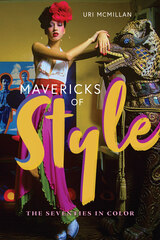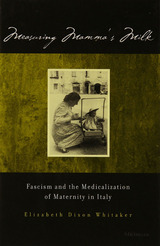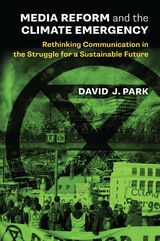6 books about White, Thomas Joseph
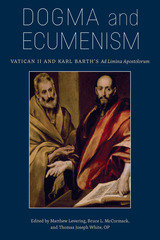
Dogma and Ecumenism
Vatican II and Karl Barth's 'Ad Limina Apostolorum'
Matthew Levering
Catholic University of America Press, 2020
The conversation of this book is structured around five major documents from the Second Vatican Council, each of which Barth commented upon in his short but penetrating response to the Council, published as Ad Limina Apostolorum. In the two opening essays, Thomas Joseph White reflects upon the contribution that this book seeks to make to contemporary ecumenism rooted in awareness of the value of dogmatic theology; and Matthew Levering explores the way in which Barth’s Ad Limina Apostolorum flows from his preconciliar dialogues with Catholic representatives of the nouvelle théologie and remain relevant to the issues facing Catholic theology today. The next two essays turn to Dei Verbum, the Dogmatic Constitution on Divine Revelation; here Katherine Sonderegger (Protestant) reflects on scripture and Lewis Ayres (Catholic) reflects on tradition. The next two essays address the Dogmatic Constitution on the Church, Lumen Gentium, which touches upon central differences of Catholic and Protestant self-understanding. Christoph Schwöbel (Protestant) analyzes visible ecclesial identity as conceived in a Protestant context, while Thomas Joseph White (Catholic) engages Barth’s Reformed criticisms of the Catholic notion of the Church. The next two essays take up Nostra Aetate: Bruce Lindley McCormack (Protestant) asks whether it is true to say that Muslims worship the same God as Christians, and Bruce D. Marshall (Catholic) explores the implications of the Council’s reflections on the Jewish people. The next two essays take up the Pastoral Constitution on the Church in the Modern World, Gaudium et Spes: John Bowlin (Protestant) makes use of the thought of Aquinas to consider the promise and perils of the document, while Francesca Aran Murphy (Catholic) engages critically with George Lindbeck’s analysis of the document. The next two essays explore Unitatis Redintegratio: Hans Boersma (Protestant) asks whether the ecumenical intention of the document is impaired by its insistence that the unity of the Church is already present in the Catholic Church, and Reinhard Hütter (Catholic) systematically addresses Barth’s questions regarding the document. The noted ecumenist and Catholic theologian Richard Schenk brings the volume to a close by reflecting on “true and false ecumenism” in the post-conciliar period.
[more]
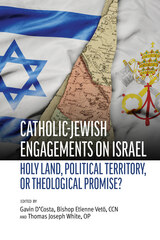
Jewish-Catholic Engagements on Israel
Holy Land, Political Territory, or Theological Promise?
Gavin D'Costa
Catholic University of America Press, 2025
This is the first volume of its kind, bringing together a group of international Jewish and Catholic scholars in creative conversation addressing the question of the status of the land called Israel. Is Israel best viewed as political territory, the ‘Holy Land’, or part of the biblical promise? If committing to one of these options, what are the theological and political consequences?
The book is divided into sections that take the reader through several related questions that bear upon this topic. There is a preface with an overview of how far Catholic Jewish conversations have gone since Nostra Aetate, and how these conversations have now begun to address the land. Then there is an attempt to advance positive theological cases by Catholics and Jews affirming the people in the land as theologically significant, not without difficulties regarding the state itself. The next section deals with the bible/Tanakh as the basis of such claims and addresses the different reading strategies by each community. One of the central questions is then addressed: what of the Palestinian people, do the biblical promise to the Jewish people spell disaster for the Palestinians? Can revelation mean dispossession? The following essays address a stumbling block for both groups: do Jewish and Christian theologies underwrite a nation state? Isn’t this option perilously close to God underwriting nationalism? The book ends with subtle critiques of the entire venture undertaken in this volume.
Essential reading for Catholic Jewish relations and one that addresses one of the most pressing contemporary questions for both religions.
[more]

The Office and Authority of the Local Prior in the Order of Saint Augustine
Robert F. Prevost
Catholic University of America Press, 2025
As a young priest, Robert Prevost was sent in 1981 to Rome to study church law at the Pontifical University of Saint Thomas (known as the Angelicum). There he earned a licentiate and composed a doctoral thesis, which made final in 1987. This is that thesis, the first book-length work composed by the man now known as Pope Leo XIV.
Specifically, his study— drawing from sources in English, Italian, and Spanish and from medieval history and theology as well as canon law —focused on the role of the prior as the local superior in the Order of St. Augustine. In doing so, he describes a traditional notion of obedience in religious life -- one based on love of the truth and growth in one's inner freedom to pursue holiness. At the center of his reflection are key ideas regarding the common good of the Church; the Eucharistic liturgy at the center of the life of the community; the role of hierarchy and consultation; and mutual respect for the diverse contributions of each person. Present in this text, moreover, is a far-reaching conception of the priesthood characterized by the triple munera: the priestly work of teaching, sanctification, and governance. Central to the whole volume is an Augustinian conception of the spiritual life that focuses on the inward work of grace, the primacy of the love of God, and inward conformity to Christ.
The book's preface—composed by eminent theologian and present-day rector of the Angelicum, Fr. Thomas Joseph White, OP—helps frame the work for the wider public interested in it as a privileged window into the mind and heart of Prevost as a young priest, showing how its subject matter has implications for how one thinks about the life of the Catholic Church. There are clearly in this early work central themes regarding the life of Church, the apostolic tradition, and ecclesial authority in the service of the common good, that may well indicate directions and themes in the subsequent life and teaching of the author. Canonists will be drawn to Prevost's analysis of the Constitutions of the Augustinians in light of the then-newly promulgated Code of Canon Law. Historians and theologians alike may enjoy considering parallelisms that occur between this Augustinian vision of the prior and the subsequent unfolding of an Augustinian pontificate. Hopefully the publication of this work will lead to constructive debate about and comprehension of the relation of between the two.
[more]

Principles of Catholic Theology, Book 3
On God, Trinity, Creation, and Christ
Thomas Joseph White
Catholic University of America Press, 2024
What if anything can human beings know about God, either by way of philosophical reasoning or by divine revelation? How does the mystery of the Incarnation illuminate our understanding of the nature and mystery of God and the nature and destiny of the human person? The essays in this book explore topics pertaining to the nature of God, apophatic theology, divine simplicity and the holy Trinity, divine beauty, and the beauty of creation. The book also contains a series of speculative considerations of Christology: Why did God become human? How ought we understand the two natures of Christ and the topic of the communication of idioms (attribution of both divine and human properties to one person)? There is also a sustained treatment of Jesus' human knowledge and voluntary freedom. Did Jesus understand his own lordship and his unity with the Father and the Holy Spirit, and if so, how? Did Christ's human will always accord with the divine will, and what significance does this idea have for our understanding of the redemption affected by Christ for the whole human race? Through these explorations, principles drawn from Thomas Aquinas and from Thomistic tradition are taken into account as key resources for the adjudication of contemporary theological challenges.
Principles of Catholic Theology, Book 3 is a continuation of Fr. Thomas Joseph White's collection of essays, extending over a range of fundamental topics in Catholic dogmatic theology.
[more]
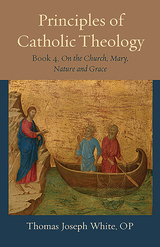
Principles of Catholic Theology, Book 4
On the Church, Mary, Nature and Grace
Thomas Joseph White
Catholic University of America Press, 2023
In the Nicene Creed Christians profess belief in the Church, "one, holy, catholic, and apostolic." The Church is also called the mystical body of Christ and the bride of Christ. What is the Church and how can we understand her mystery in light of the mystery of Christ? Principles of Catholic Theology, Book 4 explores Catholic ecclesiology and the theology of the Virgin Mary, as an exemplar of the Church's life. It also considers the people of Israel in light of the Church and Christ. The second half of the book considers human nature in light of the grace of Christ, and ecclesial humanity, so as to consider thematic and universal relations of grace to human nature. Major controversies are addressed such as the natural desire to see God and the Thomistic understanding of election and predestination. Effectively this volume seeks to receive and interpret the teaching of the Second Vatican Council Constitution on the Church, Lumen Gentium, within the Thomistic theological tradition and in light of that tradition.
Principles of Catholic Theology, Book 4 is a continuation of Fr. Thomas Joseph White's collection of essays, extending over a range of fundamental topics in Catholic dogmatic theology.
[more]

Principles of Catholic Theology, Book 5
No One is More Human Than God: On the Trinitarian Presence of God in the World
Thomas Joseph White
Catholic University of America Press, 2026
This work explores a Christian understanding of God’s presence in the world. As the Creator of all that exists, the Creator-Trinity is mysteriously present to all things, and truly but imperfectly knowable as such. In addition to this creative presence, however, there is also the manifestation of God’s presence as a gift of grace. By supernatural faith, the trinitarian life of God is made known to us as an object of the Christian mystical life. This life is centered especially upon God’s unique presence by way of Incarnation, human life, death, and resurrection, in the person of Jesus of Nazareth. This work explores these notions in comparison with other religious traditions, in a Catholic as well as ecumenical perspective. Original considerations are offered regarding the nature of scriptural inspiration, the Church as the mystical body of Christ, and the sacraments as instrumental expressions of the Incarnation, all with a view to the notion of mystical experience, and union with God.
Principles of Catholic Theology, Book 5 is a continuation of Fr. Thomas Joseph White’s collection of essays, extending over a range of fundamental topics in Catholic dogmatic theology.
[more]
READERS
Browse our collection.
PUBLISHERS
See BiblioVault's publisher services.
STUDENT SERVICES
Files for college accessibility offices.
UChicago Accessibility Resources
home | accessibility | search | about | contact us
BiblioVault ® 2001 - 2025
The University of Chicago Press


